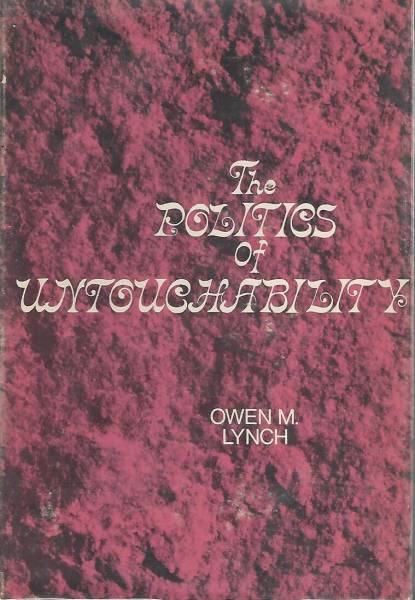January 4 was the 91st birth anniversary of Owen M Lynch, the American anthropologist who did important work on caste, untouchability, and social mobility in India.
His book, “Politics of Untouchability: Social Mobility and Social Change in a city of India”, is a comprehensive examination of the history and contemporary issues surrounding the caste system, with particular focus on the phenomenon of untouchability.

How did Lynch conduct his research on the opressed castes in India? What were some of his findings, and why are they important? We explain.
Who was Owen M Lynch?
Lynch was born on January 4, 1931, to an Irish American working-class Roman Catholic family in Flushing, Queens, New York City. After earning a BA degree from Fordham University in 1956, he moved to Columbia University to pursue doctoral work.
Between 1962 and 1964, Lynch studied the Munda languages in Madhya Pradesh, paying particular attention to the Nihali/Nahali subset. Following additional fieldwork on the Jatav Dalit people of Agra in 1964, he was awarded a PhD in anthropology in 1966. This research served as the foundation for his first book, The Politics of Untouchability (1969), and also sparked within him an enduring interest in Buddhism and the significance of BR Ambedkar as a Dalit symbol.
Apart from the Jatavs of Agra, Lynch spent time with the Chaubes of Mathura, Radha Vallabhs of Vrindavan (1988-89) and in the Dharavi slum of Mumbai (in 1970-71).
Some of his most prominent works after his first are Pilgrimage with Krishna, Sovereign of the Emotions (1988), Divine Passions: The Social Construction of Emotion in India (1992), Urban Anthropology, Postmodernist Cities, and Perspectives (1994), and Untouchables in India’s Civil/Uncivil Democracy. A Review Article (2001).
He passed away on April 26, 2013, in Boston, Massachusetts.
Importance of his work
Lynch’s work not only examines the various facets of the caste system and its impacts, but also offers ways to deal with them. Lynch discussed the role of the Indian state in addressing untouchability, and the efforts of various social and political movements to eradicate this form of discrimination. He analysed the impact of globalisation on the caste system, and the challenges and opportunities it presents for improving the status of disadvantaged castes.
He wrote that solutions may include efforts to promote education and awareness, to implement affirmative action policies and anti-discrimination laws, and to engage with community-based and grassroots organisations working to promote social justice and equality.
 The Politics of Untouchability: Social Mobility and Social Change in a City of India by Owen Lynch (Source: Amazon.in)
The Politics of Untouchability: Social Mobility and Social Change in a City of India by Owen Lynch (Source: Amazon.in)
To write The Politics of Untouchability, he stayed with the people for 16 months to conduct his research, mapping aspirations of the marginalised and the rise of caste consciousness.
Most Read 1Chandrayaan-3 mission: Dawn breaks on Moon, all eyes on lander, rover to wake up 2As Indo-Canadian relations sour, anxiety grips Indian students, residents who wish to settle in Canada 3Karan Johar says Sanjay Leela Bhansali did not call him after Rocky Aur Rani: ‘He’s never called me but…’ 4Gadar 2 box office collection day 40: Hit by Shah Rukh Khan’s Jawan onslaught, Sunny Deol movie ends BO run with Rs 45 lakh earning 5Shubh’s tour in India cancelled: Why is the Canada-based singer facing the music?
One criticism of his work can be that while it proved useful in digging out important questions, it was not fully able to answer the existing ones.
Caste, as an institution, has two separate aspects to it — tangible and intangible. The tangible aspect can be sketched out; it can be pointed out as practices of untouchability in the forms of not sharing meals, not sharing the same water source, restricting entry into various spaces.
Also ReadCurtains for old Parliament building: The Madhya Pradesh temple believed …Expert Weighs in | ‘Tagore’s vision for Santiniketan difficult to restore…Heard the ‘Makeba’ song viral on Instagram reels? Here’s the story of the…The science and history behind curly hair, and their changing perceptions…
All these have been ruled out by the law as illegal and punishable. What remains constant, though, is the intangible aspect – the unconscious belief of purity and pollution which persists and has been propagated through generations can’t be altered using the force of law.


